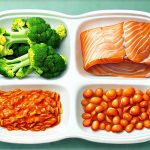The human digestive system is a remarkably complex machine, finely tuned to respond to consistent inputs and routines. Many people take for granted the seamless process of eliminating waste until disruptions occur – and one of the most common disruptions is constipation. While often attributed to simple dietary shortcomings like insufficient fiber, the reasons behind constipation are frequently multifaceted. A surprising, yet easily overlooked contributor to constipation onset can be a period without warm meals, even if overall food intake remains relatively consistent. This isn’t necessarily about hunger so much as it’s about the physiological impact of temperature on digestive processes and gut motility.
Our bodies rely heavily on thermal regulation for optimal function, and digestion is no exception. Warm foods stimulate peristalsis – the wave-like muscle contractions that move food through the digestive tract – whereas colder temperatures can have a constricting effect. This isn’t to suggest you should only eat warm food, but rather to understand how prolonged periods of exclusively cooler or room-temperature meals can subtly disrupt this natural rhythm. The absence of thermal stimulation can lead to slower digestion and increased water absorption in the colon, ultimately contributing to harder stools and difficulty with elimination. This is particularly noticeable for individuals already predisposed to constipation or those with sensitive digestive systems. You might find relief when incorporating balanced meals into your diet.
Physiological Mechanisms at Play
The connection between food temperature and bowel function isn’t merely anecdotal; it’s rooted in how our nervous system and gut interact. The enteric nervous system, often called the “second brain,” directly controls many aspects of digestion. Warm foods activate receptors within this system, triggering a cascade of responses that promote motility. Think of it like warming up an engine – it gets things moving. Conversely, cooler temperatures can dampen these signals, slowing down the digestive process and potentially leading to stagnation. This effect is amplified by the fact that our bodies expend energy heating cold food, diverting resources from other metabolic processes, including those involved in digestion.
Furthermore, the vagus nerve plays a crucial role in gut-brain communication. Warmth stimulates the vagus nerve, promoting healthy digestive function and reducing stress, which can also contribute to constipation. Cold or room temperature foods offer less of this stimulation, potentially leading to increased tension in the digestive tract. It’s important to note that this isn’t about the temperature of the food itself as much as it is about the difference between body temperature and the temperature of the ingested food. A slight cooling effect might be negligible, but consistently consuming cooler foods over several days can create a noticeable shift in gut function.
Finally, consider how warm food impacts blood flow to the digestive system. Warmth causes vasodilation – widening of blood vessels – increasing circulation to the gut. This improved blood flow delivers essential nutrients and oxygen needed for optimal digestion and muscle contraction within the intestinal walls. Cooler foods may contribute to vasoconstriction, reducing this vital blood supply. To support your system during times like these, explore warm meals that can aid digestion.
The Role of Gut Motility
Gut motility refers to the movement of food through the digestive tract. It’s a carefully orchestrated process involving complex interactions between muscles, nerves, and hormones. When motility is impaired, waste can linger for extended periods in the colon, leading to harder stools and constipation. As mentioned previously, warm foods actively promote motility by stimulating peristalsis. The warmth triggers signals that encourage these wave-like contractions, efficiently moving food along its path.
A lack of thermal stimulation from consistently cooler meals can slow down this process significantly. This isn’t an immediate effect; it typically develops over a few days of consistent cool food intake. The colon then begins to reabsorb more water from the stool, making it harder and more difficult to pass. This is why constipation often creeps up on people gradually rather than hitting them suddenly. It’s a slow build-up of impaired function. If you’re looking for dietary adjustments during sensitive times, consider minimalist meals.
Hydration & Fiber: Interacting Factors
While warm meals play a role in stimulating gut motility, they are just one piece of the puzzle. Adequate hydration and sufficient fiber intake remain foundational to healthy bowel movements. However, even with optimal hydration and fiber consumption, constipation can still occur if warm food is absent, as the digestive process itself isn’t being adequately stimulated. Think of it like trying to push a heavy object – you need both strength (fiber) and momentum (warmth/motility).
- Fiber adds bulk to stool, making it easier to pass.
- Hydration keeps stool soft and pliable.
- Warm food provides the necessary “momentum” to move things along.
It’s also worth considering that dehydration can exacerbate the effects of cold or room temperature foods. When dehydrated, the colon will reabsorb even more water from the stool, making constipation more likely. Therefore, staying well-hydrated is crucial, especially when consuming predominantly cooler meals. A balanced approach – focusing on hydration, fiber, and incorporating warm foods regularly – is essential for maintaining healthy bowel function. You could also consider blended meals to ease digestion.
Addressing Constipation Onset After Days of Cool Meals
If you find yourself experiencing constipation after a period of primarily consuming cool or room-temperature meals, there are several gentle steps you can take to restore normal bowel function. It’s important to emphasize that these are general suggestions and should not replace professional medical advice.
- Gradually reintroduce warm foods: Start with simple options like warm tea, soup, or oatmeal. Avoid sudden drastic changes in diet, as this can further disrupt digestion.
- Increase fluid intake: Drink plenty of water throughout the day. Herbal teas and warm water with lemon can also be helpful.
- Gentle exercise: Light physical activity, such as walking, can help stimulate gut motility. Avoid strenuous exercise initially.
- Consider a gentle digestive aid: Some individuals find relief from ginger or peppermint tea, both of which are known to aid digestion. Always consult with a healthcare professional before taking any new supplements.
- Mindful eating: Take your time while eating and chew food thoroughly to aid in the digestive process.
Ultimately, preventing constipation is far easier than treating it. Being mindful of incorporating warm foods into your diet regularly – even if just one meal per day – can significantly contribute to maintaining healthy digestive function and avoiding discomfort. The subtle impact of temperature on our gut shouldn’t be underestimated; it’s a reminder that even small changes in our routines can have significant effects on our overall wellbeing. Consider gut reboot meals to help restore balance. You may also find relief with light bulking meals. Finally, focus on compact meals to avoid abdominal discomfort.


















